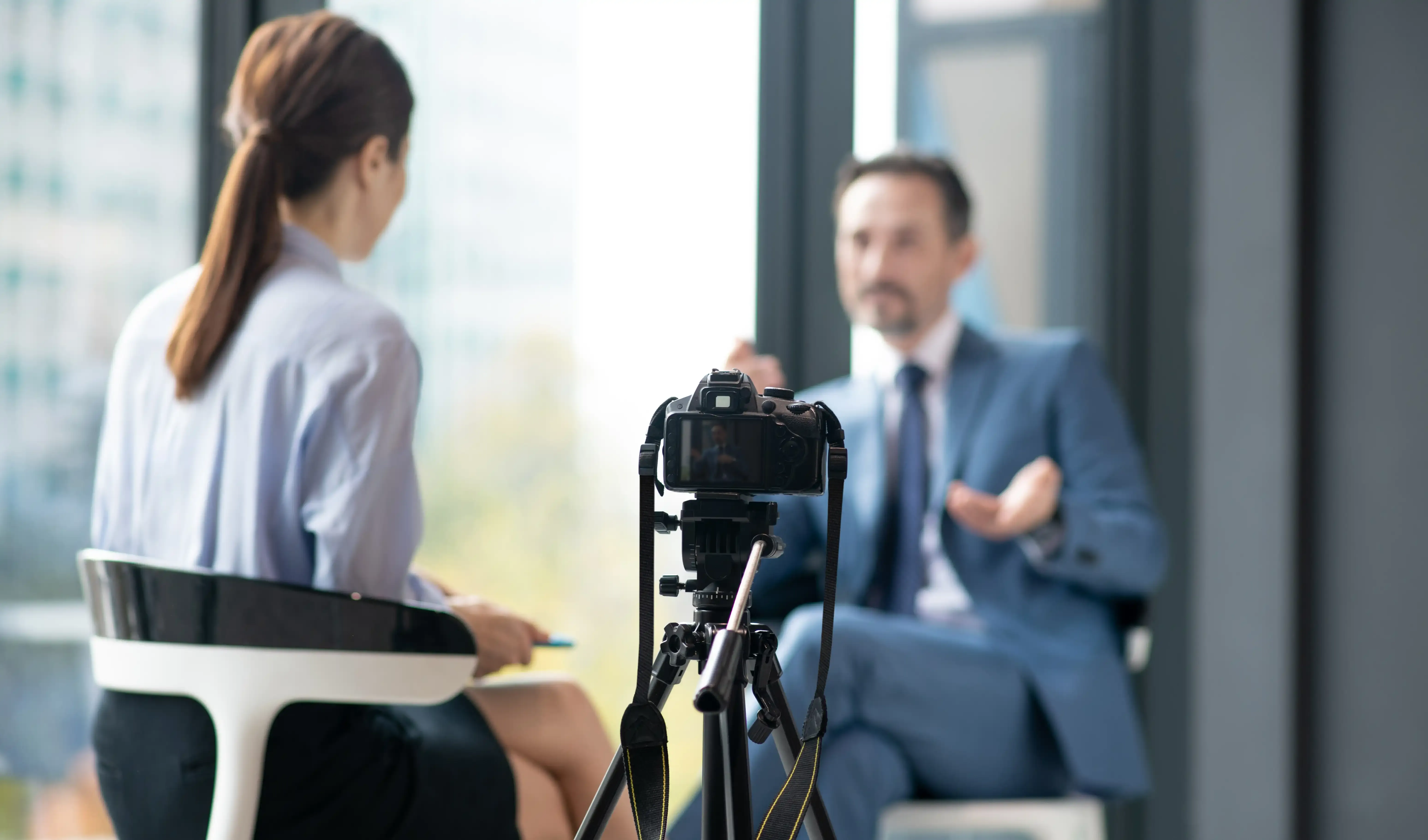A side-by-side comparison of traditional vs legal video depositions
Wiki Article
The Significance of Lawful Video Depositions in Modern Legal Solutions: What You Should Know
Legal video depositions have ended up being important in today's lawful landscape. They offer a multidimensional view of witness statements that standard records merely can not match. By recording both spoken and non-verbal interaction, these depositions boost the overall understanding of a witness's credibility. Nevertheless, the efficiency of video depositions rests on various elements, including conformity with lawful standards and finest techniques (legal video depositions). Checking out these elements exposes their real relevance in modern-day legal servicesWhat Are Legal Video Clip Depositions?
Lawful video depositions function as an important device in the lawsuits procedure. They include videotaping witness statements in a video format, recording both non-verbal and spoken communication. This technique enables attorneys to record the disposition, expressions, and reactions of witnesses, offering a richer context for the testament. Commonly conducted in a regulated setting, these depositions are led by attorneys who ask concerns while a stenotype reporter records the discussion. The resulting video can be important for trial prep work, as it allows lawyers to analyze the reliability of witnesses and fine-tune their strategies. Furthermore, legal video depositions can be made use of in various legal contexts, varying from civil conflicts to criminal cases. The acoustic and aesthetic aspects of video depositions improve the discussion of evidence, making it an important component in the contemporary legal landscape. On the whole, they add substantially to the effectiveness and effectiveness of legal process.
Benefits of Video Clip Depositions Over Traditional Approaches
Video depositions offer countless advantages contrasted to traditional approaches of taking witness testaments. One considerable benefit is the capability to capture both audio and visual aspects, providing a much more thorough record of the witness's statements. This double style enhances clarity and enables lawful specialists to reference particular subtleties during test preparation. In addition, video clip depositions help with remote participation, making it simpler for witnesses that may be inaccessible for in-person appearances because of geographical constraints or health issues.Moreover, video clip depositions can expedite the overall deposition procedure, minimizing the time and costs connected with traveling and logistics. They additionally boost access, as tape-recorded depositions can be conveniently shared amongst lawful teams and referenced at any moment. This benefit adds to much better instance administration and prep work. On the whole, video clip depositions stand for a contemporary, efficient technique to gathering witness testaments, aligning with the developing needs of the legal profession.The Role of Body Movement and Tone in Testimonies

In lawful video depositions, body language and tone play essential duties in communicating a witness's credibility and credibility. Nonverbal signs can provide insights right into a witness's mood, affecting just how their testament is regarded. Recognizing the influence of these components is crucial for jurors and attorneys alike when reviewing the reliability of a testament.
Nonverbal Communication Insights
While spoken communication is often emphasized in legal testimonies, nonverbal signs such as body language and tone play a vital function in communicating trustworthiness and emotion. Viewers of depositions might keep in mind that a witness's position, motions, and faces can considerably affect assumptions of dependability. Consistent eye get in touch with might signify confidence, while preventing look could suggest dishonesty or pain. Similarly, the tone of voice-- its pitch, rate, and volume-- can give feelings of sincerity or unpredictability. Lawyers must be in harmony with these nonverbal signals, as they frequently give critical context that matches talked words. Recognizing these nuances can boost the effectiveness of depositions and affect the end result of legal procedures.Psychological Tone Influence
The emotional tone conveyed throughout lawful testimonies considerably influences exactly how a witness is perceived. Body language, vocal inflections, and facial expressions play crucial duties in shaping the story of a testament. A witness showing confidence via stable eye call and a calm tone can infuse a feeling of integrity and interaction. On the other hand, indicators of anxiety, such as fidgeting or an unstable voice, may bring about skepticism regarding their account. The subtleties of emotional expression can influence the analysis of facts, making it crucial for lawyers to acknowledge these hints. In video depositions, the auditory and visual components integrate, stressing the relevance of psychological tone in conveying sincerity and reliability within the lawful procedure.Reliability and Reliability
A vital element in establishing integrity and reliability during statements depends on the witness's body language and tone of voice. Onlookers commonly count on non-verbal signs-- such as eye contact, stance, and motions-- to assess a witness's genuineness. For example, a witness who keeps eye call and presents open body language may be regarded as even more honest and trusted than one that prevents eye call or appears blocked. Furthermore, intonation plays an important duty; a consistent, tranquil tone can strengthen the trustworthiness of the testimony, while changes in pitch or quantity may increase doubts. Ultimately, the combination of body movement and singing tone considerably influences how a witness's statements are gotten and interpreted in a legal context.Ideal Practices for Carrying Out Video Clip Depositions
Conducting video clip depositions needs careful preparation and implementation to ensure a clear and efficient discussion of testimony. It is essential to select a peaceful, well-lit area to decrease distractions and safe and secure optimum video clip quality. The devices needs to be evaluated beforehand, consisting of electronic cameras, microphones, and lights, to prevent technological issues during the deposition.Next, events entailed need to assess the style and procedures beforehand, ensuring that click to find out more everyone recognizes their duties. The deponent should be briefed on the procedure, consisting of just how to react plainly and concisely.Additionally, preserving a professional demeanor throughout the session is vital. This consists of refraining from talking over each other and verifying that all questions are routed properly. Lastly, it is essential to tape the deposition in a layout that enables easy playback and testimonial, preserving the integrity of the testament for future use.Lawful Considerations and Conformity Issues
Just how do lawful factors to consider and conformity problems affect the performance of video depositions? Lawful experts should navigate a complicated landscape of laws, guaranteeing that video depositions original site abide by jurisdictional rules and standards. Conformity with laws concerning personal privacy, approval, and tape-recording approaches is necessary. Acquiring specific approval from all parties entailed is necessary to stay clear of legal repercussions.Additionally, the admissibility of video clip evidence in court can hinge on conformity with step-by-step requirements. Making sure that the equipment made use of meets technological requirements is additionally important, as bad quality can weaken the deposition's reliability.Moreover, lawyers have to understand any kind of particular state regulations that regulate video clip depositions, as these can differ substantially. Failure to deal with these factors to consider can not just endanger the integrity of the deposition yet also influence the general instance method, ultimately impacting the client's lawful end results.Exactly How Video Clip Depositions Effect Court Understanding
While video clip depositions can function as effective tools in legal process, their influence on court perception is considerable. The acoustic and visual aspects of video clip recordings offer jurors with a much more extensive understanding of witness disposition, credibility, and psychological responses. This multimedia method can boost the jurors' ability to examine the integrity of testimony contrasted to typical text-based transcripts.Moreover, video depositions enable jurors to observe body movement, tone of voice, and facial expressions, every one of which can influence their interpretation of the witness's statements. The visibility of a witness on display can humanize them, fostering compassion and link, which may persuade jurors' point of views. On the other hand, a witness who appears unreliable or incredibly elusive on video may cause adverse assumptions that influence a jury's choice. Inevitably, the vibrant nature of video clip depositions plays a vital role fit exactly how jurors translate evidence and reach their decisions.The Future of Video Clip Depositions in Legal Method
As innovations in modern technology continue to reshape the legal landscape, the future of video depositions is poised for significant evolution. Innovations such as artificial intelligence, virtual reality, and enhanced video clip conferencing devices are anticipated to simplify the deposition procedure and boost access. Attorneys may utilize AI-driven analytics to evaluate witness trustworthiness and situation strength more effectively.Moreover, the assimilation of virtual reality can permit juries to experience immersive simulations of depositions, offering deeper context and understanding. In addition, the fad toward remote depositions is likely to linger, supplying higher flexibility for clients and lawyers alike.As remote job ends up being increasingly stabilized, video depositions will likely become standard technique, minimizing costs and time restraints connected with conventional methods. On the whole, these technological advancements assure to improve the performance, efficiency, and ease of access of video clip depositions in legal technique, eventually changing exactly how lawyers prepare for test.Frequently Asked Inquiries
Discover More HereJust How Much Do Lawful Video Depositions Normally Cost?

Can Video Depositions Be Utilized in Any Kind Of Type of Instance?
Video depositions can be used in numerous types of instances, including civil, criminal, and family members law. Their versatility permits attorneys to present witness testaments effectively, adapting to the details needs of different lawful scenarios.What Equipment Is Needed for a Video Clip Deposition?
To perform a video deposition, necessary tools includes a premium electronic camera, microphone, lighting, and a reputable recording tool. In addition, a computer with editing software may be needed for post-production and formatting the last video clip.The length of time Does a Typical Video Deposition Last?
A common video deposition lasts in between 2 to four hours, depending on the complexity of the case and the number of questions posed. Extended sessions may occur, but breaks are typically incorporated for participant comfort.

Are Video Depositions Admissible in Court?
Video depositions are typically acceptable in court, supplied they comply with legal requirements and guidelines of evidence. Their use enhances clarity and maintains witness testament, assisting in the judicial procedure throughout trials and hearings. Legal video clip depositions have actually ended up being necessary in today's lawful landscape. Furthermore, legal video clip depositions can be utilized in various lawful contexts, varying from civil conflicts to criminal cases. Additionally, video clip depositions promote remote involvement, making it simpler for witnesses who might be inaccessible for in-person appearances due to geographical restrictions or health and wellness issues.Moreover, video depositions can quicken the general deposition process, reducing the time and expenses associated with traveling and logistics. Making sure that the devices used fulfills technical criteria is likewise important, as inadequate high quality can undermine the deposition's reliability.Moreover, lawyers need to be conscious of any type of certain state legislations that regulate video clip depositions, as these can differ substantially. In addition, the pattern towards remote depositions is most likely to continue, providing higher flexibility for attorneys and customers alike.As remote job becomes significantly normalized, video clip depositions will likely become standard technique, minimizing expenses and time restrictions linked with conventional approaches.Report this wiki page